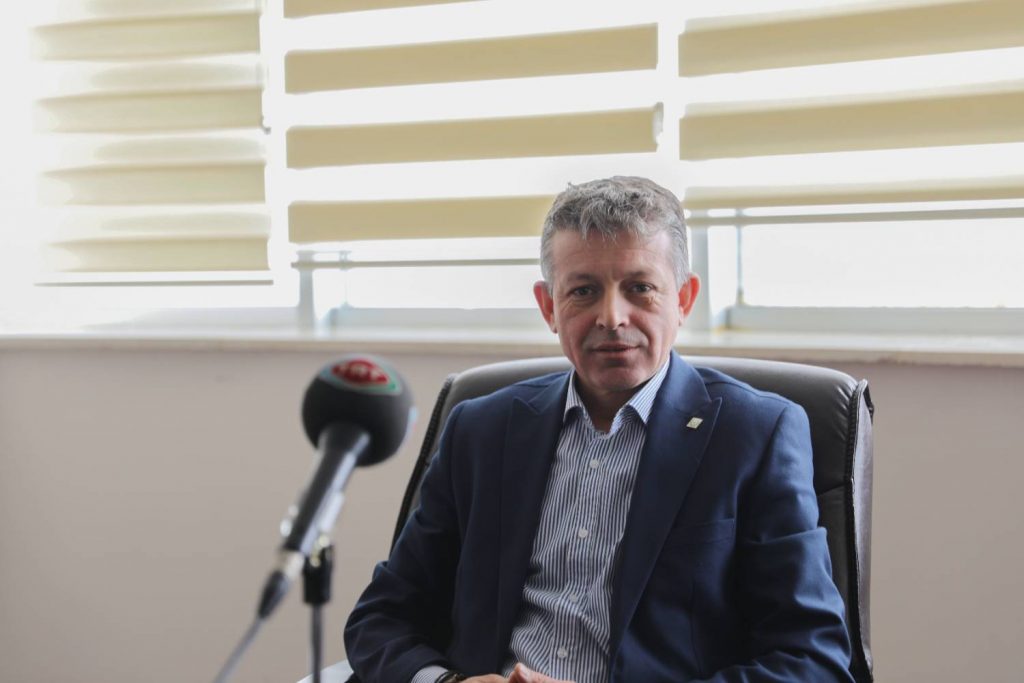Professor Murat Ali Karavelioğlu, Faculty Member of the Faculty of Science and Literature, was a guest on TRT Erzurum Radio as part of “World Poetry Day.”
In the program, Prof. Dr. Karavelioğlu touched on many topics, such as the purpose and history of World Poetry Day, emphasizing that it is very meaningful that this special day coincides with Nowruz.
Describing the purpose of “World Poetry Day,” first declared by UNESCO in 1999, as “raising awareness and providing fresh energy to national, universal, and regional poetry movements,” Prof. Dr. Karavelioğlu continued:
 We see that UNESCO has declared today as Poetry Day to celebrate linguistic diversity. On this occasion, programs and events highlighting the meaning and importance of the day and contributing to raising awareness are being organized in our schools, universities, civil society organizations, and distinguished media outlets like yours. The aim is to increase people's interest in poetry, especially among young people and students. The goal is for poetry to become widespread and accepted as a universal means of communication among people.
We see that UNESCO has declared today as Poetry Day to celebrate linguistic diversity. On this occasion, programs and events highlighting the meaning and importance of the day and contributing to raising awareness are being organized in our schools, universities, civil society organizations, and distinguished media outlets like yours. The aim is to increase people's interest in poetry, especially among young people and students. The goal is for poetry to become widespread and accepted as a universal means of communication among people.
We can comfortably say that poetry has always been at the forefront throughout history.
Emphasizing that the Turkish nation has left behind unique works in many fields from the past to the present, Prof. Dr. Karavelioğlu conveyed the importance of poetry from the past to the present as follows:
When it comes to Turkish literature, we can confidently say that poetry has always been at the forefront throughout history for all the reasons we have listed or cannot list. The Turkish nation, which has produced unique works in every field of fine arts, from architecture to all forms of traditional Islamic art, from painting to music, has also left works that are a legacy to all of humanity in the field of poetry, thanks to its high level of literature and aesthetic taste. Starting with the Uyghur period poems, which are among our first written works of poetry, legends, epics, anecdotes, rhymes, folk songs, songs, ghazals, and odes, not to mention the prose poems of our modern literature, poetry constitutes the most important part of our literary history. So much so that the record of an important historical event, the identity card of an architectural work, or anything that happened to an important person has been immortalized in poetry. Looking at Ottoman Turkish literature, someone with the highest level of education and someone else who could not even read or write could create classical literature within the same literary tradition and subject to the same rules. Once upon a time, lovers could only express their love through poetry. Sons would ask their fathers for something through poetry, and fathers would ask their sons for something through poetry. The purest and most unadulterated form of love was most often expressed in poetry and, consequently, in folk songs and songs. Throughout history, our poetry has carried the pure and pristine form of the Turkish language into eternity."
Prof. Dr. Karavelioğlu then noted that poetic thought has been increasingly pushed aside with the advancement of technology and concluded his remarks by saying: “Instead of lamenting the loss of such ideas, we should read, reflect, and see in poetry both the tranquility and the passion of our soul. We must not forget that poetry, and art in general, is the only language that can be common to all humanity. With these feelings and thoughts, I celebrate World Poetry Day, first and foremost with our poets and the entire literary community, as well as our esteemed audience and everyone else. I advise young people to carefully read the leading poets of Eastern and Western literatures, starting with our classical Turkish poets.

